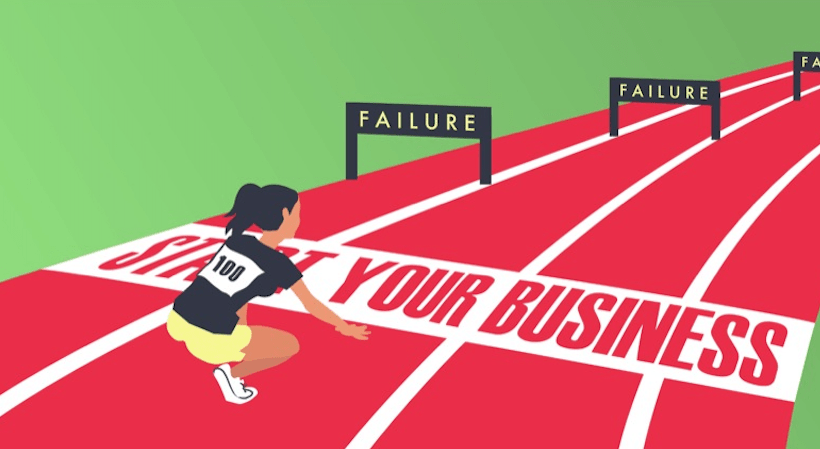Many would-be entrepreneurs never start a business because they’re waiting for the perfect idea or don’t have enough disposable capital to break out of the rat race.
These accomplished entrepreneurs and members of The Oracles share how to start a business with $100:
StartupNation exclusive discounts and savings on Dell products and accessories: Learn more here
1. Buy and flip

Even the poorest of us has $500 to $5,000 of crap sitting in our closets. Those unwanted toys — the jacket you no longer wear, shoes that are out of style, or that old hammer — $7.99 on eBay is better than zero. That’s how you start building your capital.
Find out what things are worth. Research the hell out of it. Devour completed auctions on eBay to know the value. Become an expert in that category. Then, once you know your products, know the markets. Buy on Craigslist and sell on eBay. Buy some old T-shirts on eBay, and turn them around as trendy vintage tees on Etsy. Buy at Goodwill or a yard sale, and flip on Facebook Marketplace.
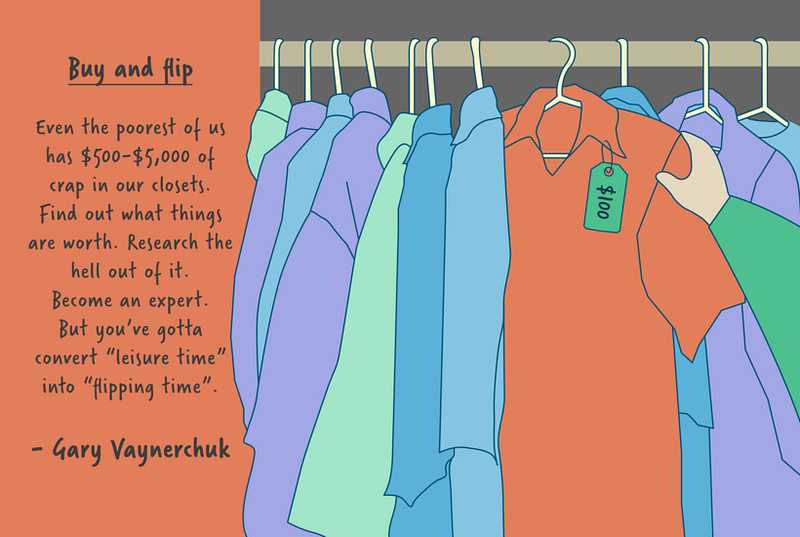
But you’ve got to make the time for it. $20,170 can be easily made this year if you take the 300 to 500 hours you were going to waste reading on the bus, playing an iPhone game or watching every sports game and apply them to learning the markets. Convert that leisure time into flipping time.
—Gary Vaynerchuk, founder and CEO of VaynerMedia (700+ employees with over $100 million in annual revenue) and NYT-bestselling author
Related: How to Turn $100 into $1 Million According to 8 Self-Made Millionaires
2. Sell or service

The best businesses to start when you have $100 or less are either sales or service businesses. All you need is your phone and the internet.
It could be a consulting business or selling cars, life insurance or even vacuum cleaners door to door.
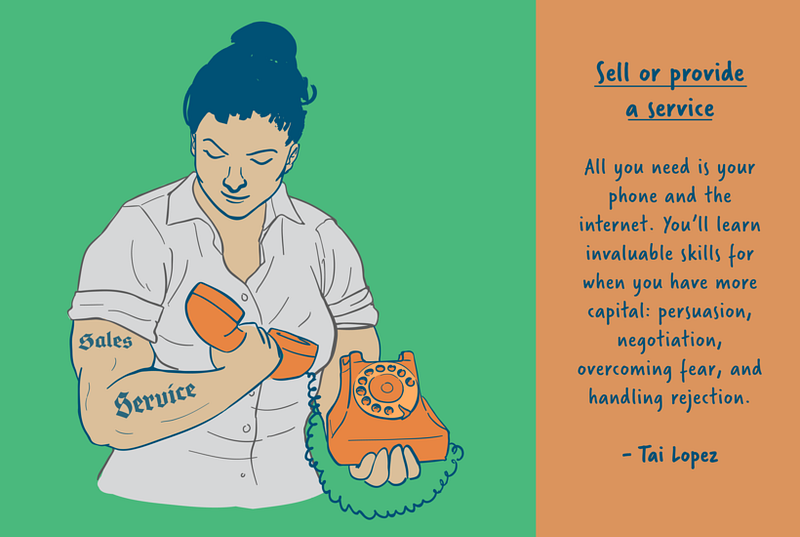
These fields hone the skills that will be invaluable when you have more capital. You’ll learn how to persuade, negotiate, overcome fear and handle rejection.
In every city, someone will always hire you to do cold call, commission-only sales because there’s no risk: if you don’t sell, they don’t pay you.
—Tai Lopez, investor and advisor to many multimillion-dollar businesses, who has built an eight-figure online empire; connect with Tai on Facebook or Snapchat
3. Test before you invest
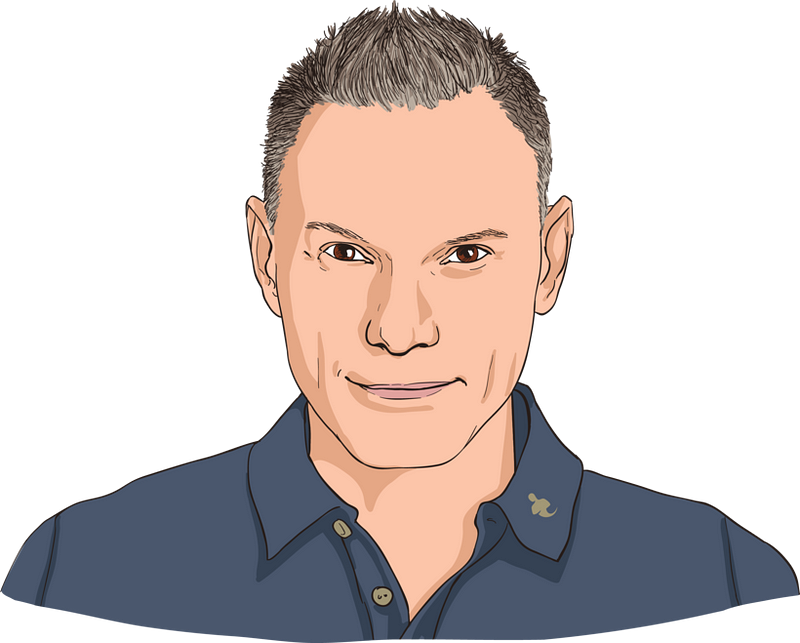
Would-be entrepreneurs are afraid to start a business because they’re afraid to fail. Test your idea or generate leads with 20 $5 Facebook ads — a $100 investment.
You’ll get a positive or negative response. If you get many leads that you can close — which bring in more than $100 — roll it out from there. This gives you momentum and traction.

We call it “testing before you invest.” Spend $100 and bring in $200 to $300. Spend $1,000 and bring in $2,000 to $3,000.
This is how a typical campaign starts and rolls out. The amazing thing is that in many cases, these metrics will hold upward and beyond $100,000 a week in spending. Now is the time to start a business. Act now.
—Kevin Harrington, inventor of the infomercial, pioneer of the “As Seen on TV” industry, and original Shark on “Shark Tank”
4. Utilize your expertise
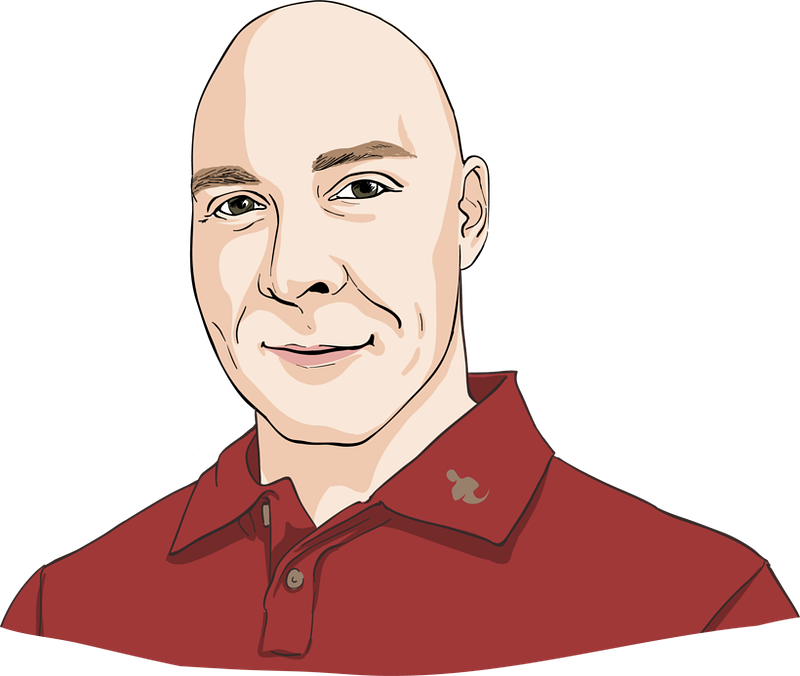
The simplest way to “bootstrap” (start a company with minimal finances) is to identify, share, consult or teach, and scale. Take your $100, and stash it away for a rainy day. I took this path to create an eight-figure global consulting and hosting company.
First, identify an area of knowledge that others want to know. Consider your profession, skill, or hobby. I look for one that satisfies four criteria: passion (you care), skill (you can do it), market need (people will pay), and timing (people are looking for it now).

Next, find out where people who need your knowledge hang out. It could be a forum, a website, a social media platform or someplace in real life. Share your knowledge in a way that matches how people consume information. (Use your phone if you need to make audio or videos). Besides building a reputation and authority, use this time to refine your ideal customer and branding.
When people want more, offer your services as a consultant, teacher or mentor. You’re trading hours for dollars, and it only scales so far but that’s fine. Split the money you make into thirds — for yourself, to reinvest in growth and to stash away for the right opportunity. Build your cash reserves and authority while refining your market research (customer needs and your offering).
Finally, scale. Raise your rates. Outsource and automate tasks that don’t match your unique gift. Hire others to teach or consult for you. Create an app, course, or product that doesn’t require you to trade time for money. License your intellectual property. You will make the most of your financial gains in this phase. So, besides building and empowering your team, use this time to innovate.
—Chris Plough, author, speaker and advisor; he equips epic entrepreneurs for the world that’s coming
5. Don’t forget service
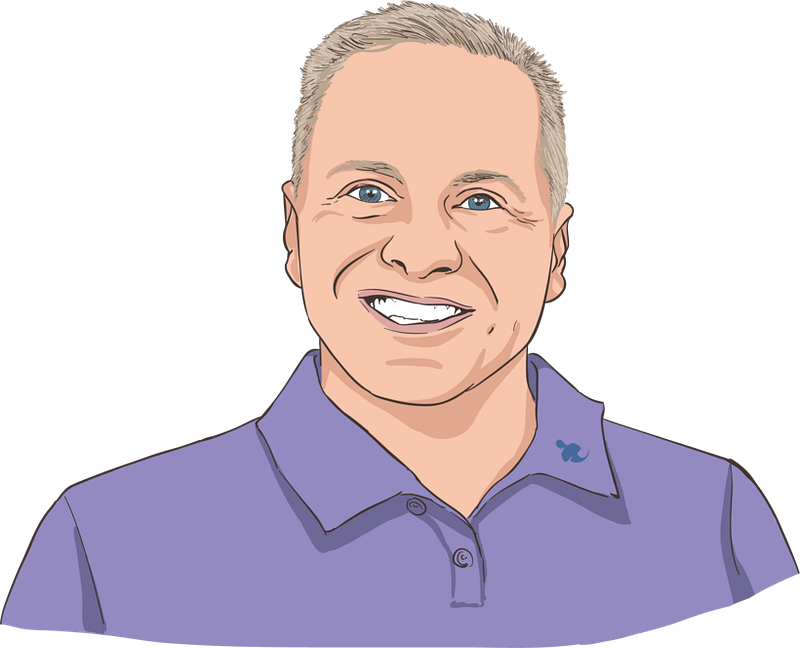
Growing up, my dad would get laid off from his union construction job from time to time. One day, he bought a $100 hedge trimmer and put up signs in the neighborhood saying: “I trim shrubs.” Folks called, and he could put food on a table for a family of seven. “Whatever it takes” was instilled in me from an early age.
My industry — horticultural landscaping — is one of the easiest businesses to start in. It’s a lot of hard work, but as my dad proved, it’s low entry (plus, you get a free workout).
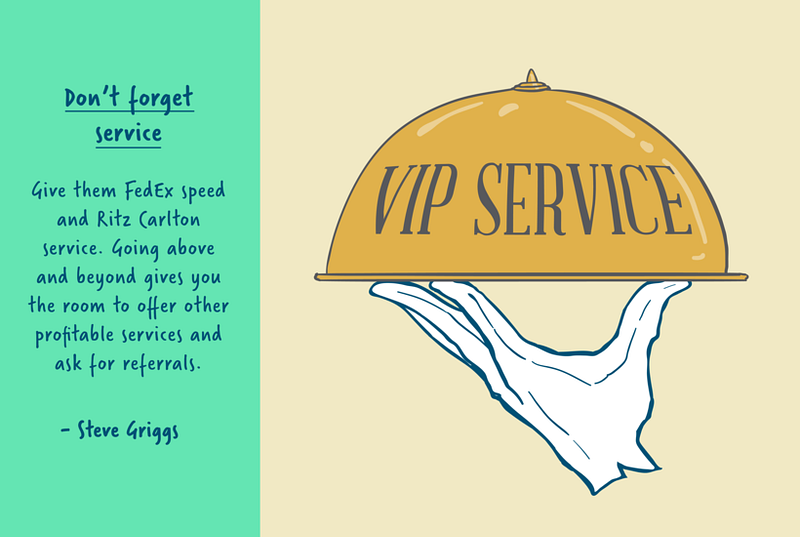
The best way to drum up business with a zero marketing budget is to service the crap out of existing clients. Give them FedEx speed and Ritz Carlton service — it won’t cost you to be faster and nicer. Going above and beyond gives you the room to offer other profitable services within your niche.
Remember: every client has at least a few referrals in them. Push for these: not only are you spending zero dollars in marketing, you’ve already done great work, so the least they can do is offer you a name.
—Steve Griggs, founder and CEO of Steve Griggs Design; NYC’s premier landscape designer transforming backyards and rooftop gardens into private getaways
Sign Up: Receive the StartupNation newsletter!
6. It’s never about the money

You could start over 6,000 businesses with $100. For example, starting a network marketing business is straightforward. It’s even simpler to take options on property. In fact, I’ve taken whole blocks of apartments with a $100 option and traded these properties.

But it’s never about the amount of money you have. It’s about how good the idea is. It’s about your team, joint venture partners and money partners who will help you with the transaction. It’s about your deep knowledge and understanding of the marketplace that will transition you to liberation.
As the entrepreneur, it’s your job to articulate the vision of the future and bring the right people together. Money is the least of your issues.
—Roy McDonald, founder and CEO of OneLife
Originally published on Entrepreneur.com. ©2017 by Entrepreneur Media, Inc. All rights reserved.
Originally published on startupnation.com on May 21, 2021.


